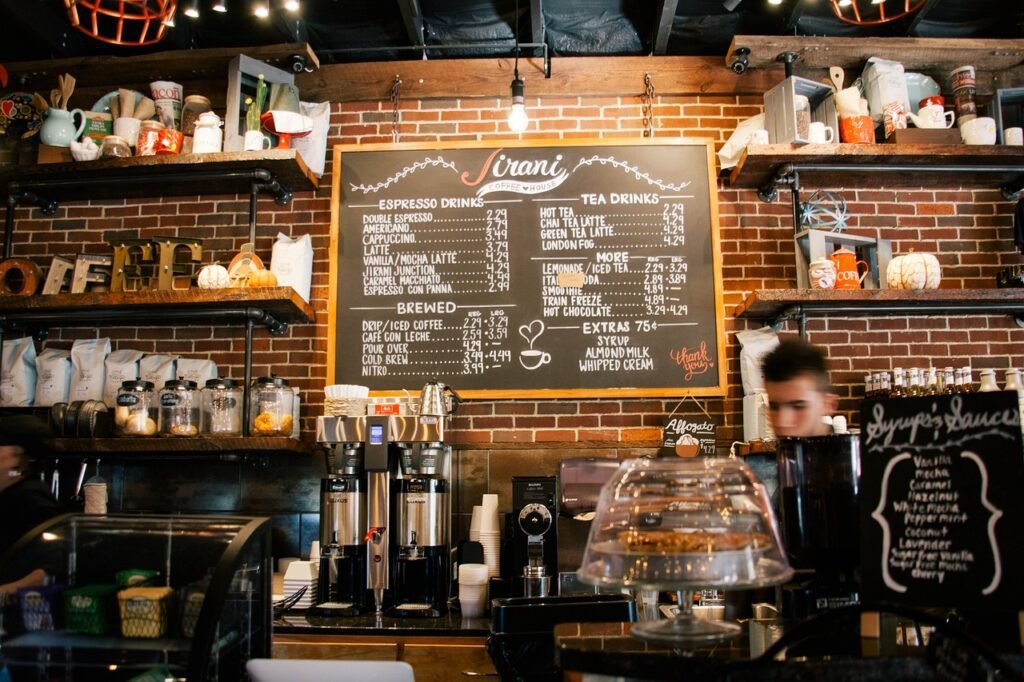Why is Coffee Called Java?
Coffee Queries is reader-supported. When you buy through links on our website, we may earn an affiliate commission. Learn More
The world’s most famous morning beverage has lots of nicknames. Ever since coffee came into the picture, it has gotten many names like ‘cup of joe,’ ‘mud,’ and ‘java.’ You have probably seen the word Java written next to a coffee cup somewhere and then wondered why coffee is called Java.
The Quick Answer — The word “Java” has been historically used as a slang name for coffee. This usage originated from the island of Java in Indonesia as it has a long history of coffee cultivation and trade.
Historical Context of Coffee Cultivation in Java

Java, the largest island in Indonesia, has played a pivotal role in the history of coffee. To understand why coffee is called “java,” we need to understand the historical context of coffee cultivation and trade on this island.
Early Coffee Cultivation in Java: Coffee was introduced to Java by the Dutch in the late 17th century. This tropical island, with its rich volcanic soil and ideal climate, proved to be a fertile ground for coffee plants. Java quickly became one of the world’s primary coffee producers.
Dutch Colonialism: During the Dutch colonial era, which lasted for over three centuries, coffee plantations flourished. The Dutch East India Company (VOC) played a significant role in promoting coffee cultivation on the island.
Java Coffee Varietals: The coffee cultivated in Java gained recognition for its unique taste and qualities. Arabica and Robusta beans were the primary varieties produced, and Java Arabica, in particular, was celebrated for its smooth, mild flavor with a slightly earthy undertone.
Emergence of the Term “Java” to Describe Coffee
Following are certain important factors on why coffee started to become known as Java!
- Colonial Influence on Language: During this time, when coffee from Java was widely exported to Europe, the term “java” became associated with the coffee itself. As language often does, it adapted to the cultural context.
Slang and Linguistic Evolution: The term “java” started as slang among traders and seafarers who brought the coffee to European shores.
Generalization of Terms: As a convenient catch-all term for coffee, “java” made its way into common usage. Just as we say “coke” for any cola, “java” started to stand in for coffee in general.
Contemporary Usage: While the Dutch colonial era has long passed, the term “java” continues to be used as a casual and friendly way to refer to coffee. It’s a nod to the history and origins of the coffee we enjoy today.
For more, read the history of coffee.
How the Term “Java” Became Popular in the World?

Coffeehouses in both Europe and America played crucial roles in the exchange of ideas during the Enlightenment and the Age of Revolution. In these intellectual hubs, the term “java” often found its place among the various monikers for coffee.
Coffee became not just a beverage but a cultural phenomenon, with coffeehouses serving as gathering places for artists, writers, philosophers, and politicians. The influence of these establishments was immense.
The 19th century brought the Industrial Revolution, and with it, a growing need for a caffeinated boost. Coffee’s popularity soared further, and the term “java” began to stick as a catchy and colloquial name for the drink.
As the 20th century dawned, coffee continued to play a central role in Western culture. World War I saw the development of “instant coffee” for soldiers, and coffee became an integral part of daily life. “Java” was firmly rooted as a casual term for the drink.
“Java” also found its way into pop culture. Songs, movies, and literature have all referenced “java” as a synonym for coffee. For example, the song “Java Jive” by The Ink Spots and the coffee-loving character Java the Hut in “Spaceballs.”
Remember: Coffee terminology has evolved over time. “Java” was one of many nicknames for coffee. Terms like “joe” and “a cup of mud” also emerged. These nicknames reflect the diverse ways people have described their beloved brew.
Editor’s Pick: Comparing the Most Widespread Types of Coffee
Conclusion
As we sip our morning coffee, it’s fascinating to think about the many quirky nicknames it has earned over time. One of the most famous ones is “java.” But why is coffee called “java”? Well, it all goes back to the island of Java in Indonesia, where coffee has been grown for ages. . The term “java” was like a catchy nickname that stuck. From coffeehouses to pop culture, it had its time in the spotlight. So, raise your cup of “java” and let’s brew some more memories!






